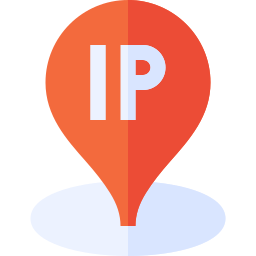Your IP Address
Display your public IP address over the internet.

What is an IP Address?
An IP (Internet Protocol) address is a unique identifier assigned to each device connected to a computer network that uses the Internet Protocol for communication. An IP address serves two main functions: identifying the host or network interface, and providing the location of the host in the network, facilitating the routing of traffic.
History of IP Addresses
The concept of IP addresses originated in the early 1970s during the development of the ARPANET, the precursor to the modern internet. The first major version, IPv4 (Internet Protocol version 4), was standardized in 1981 by the Internet Engineering Task Force (IETF). IPv4 uses a 32-bit address space, which allows for approximately 4.3 billion unique addresses. With the explosive growth of the internet and the increasing number of connected devices, it became clear that a larger address space was necessary. This led to the development of IPv6, which was introduced in 1998 and uses 128-bit addresses, providing a virtually unlimited number of unique IP addresses.
Types of IP Addresses
There are two primary types of IP addresses: IPv4 and IPv6. As mentioned, IPv4 addresses are 32-bit numbers represented in a dotted decimal format (e.g., 192.168.1.1), while IPv6 addresses are 128-bit numbers typically written in hexadecimal notation (e.g., 2001:0db8:85a3:0000:0000:8a2e:0370:7334).
Additionally, IP addresses can be either public or private. A public IP address is used for communication between devices on the global internet, whereas private IP addresses are used within local networks (such as in homes or businesses) and are not routable on the public internet. Network Address Translation (NAT) is often used to allow multiple devices on a private network to share a single public IP address.
How IP Addresses Work
When data is sent over the internet, it is broken down into smaller units called packets. Each packet contains both the sender's and recipient's IP addresses. Routers and other networking devices use these addresses to forward the packets to their destination, ensuring that the data reaches the correct device. This process is known as routing.
The Importance of IP Addresses
IP addresses are essential for the functioning of the internet. They allow devices to communicate with one another, whether sending an email, browsing a website, or streaming a video. Without IP addresses, data could not be properly directed to its intended destination, and the internet as we know it would not be possible.
IPv4 vs. IPv6
While IPv4 is still widely used, the transition to IPv6 is becoming increasingly important due to the limited number of available IPv4 addresses. IPv6 offers a vastly larger address space, improved security features, and more efficient routing. However, the adoption of IPv6 has been slow, and both versions currently coexist on the internet.
Conclusion
In summary, IP addresses play a crucial role in enabling communication between devices on the internet. As the internet continues to grow and evolve, so too will the technologies that rely on IP addressing, ensuring the continued expansion of global connectivity.